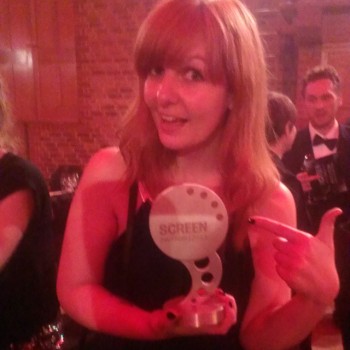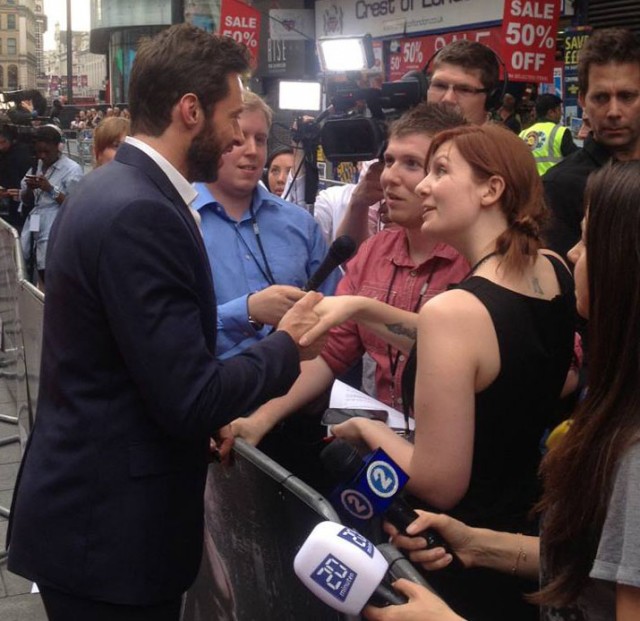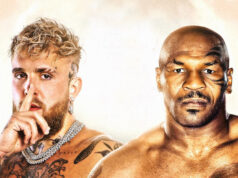Love film? Ever wanted to work in film PR? If your answer is yes and yes, you need to read on. We spent a moment with Becky Brynolf, digital publicist and social media manager at Substance Global to find out exactly what it’s like to work in film and entertainment PR.
 Name: Becky Brynolf
Name: Becky Brynolf
Job title: Digital Publicist and Social Media Manager – Film and Entertainment
Company: Substance Global
What does your job role entail?
Identifying the audience that is most likely to go see your client’s film, and use digital platforms to make sure your audience knows when the film is coming out, and get them so excited for it that it’s their only option on opening weekend.
Describe your working day or week?
Lots of emails! About 75% of my time is spent liaising with clients and journalists about film coverage; pitching exclusive clips and trailers, arranging talent junkets, and organising social media activity. Another 10% will usually involve the glamourous stuff that my mum thinks I do all the time; going to press screenings, working premieres, being involved in talent junkets, meeting with journalists and clients for breakfasts and lunches. The final 15% is dedicated to reporting. Every time we launch a new trailer or organise a talent junket or a screening, we follow it up by collecting all the web links, screen grabs and reactions, and supply them to the client. Film marketing can be a costly business and the client wants to know that their budgets are being put to good use. Reporting helps back up the work we do, while also refining future campaigns and best practices.
Finally there’s the unaccounted time spent after-hours, checking emails, monitoring clients’ social media accounts, looking out for any movie news that relates to your campaign. It’s the nature of the 24-hour, global industry. Every film PR I know does it.
What key skills do you need to do your job?
Organisation. Being sociable. Being organised. Knowing how to talk to people at all levels. Organising. Time-management. Being able to think on your feet and outside the box. Being able to build relationships with journalists and clients. Copywriting. Did I mention organisation?
What made you decide to go for this job role?
I’ve always loved film. After I finished my Masters degree I was stuck in a customer service job, hating life, wondering how I would ever get my foot in the film industry door. An internship opportunity with Substance Global was retweeted into my Twitter timeline, and while I’d never considered publicity or social media as a career before, they were looking for film fans. I applied, interviewed, interned for six weeks and was offered a job! It turned out to be something I was good at, could sink my teeth into and it would help me develop professionally. Even if I don’t stay in publicity and social media for the rest of my career, I’m in a stronger, much more experienced position within the film industry now than I was two years ago.
Best part of your job?
The people. Not only do I work with some really fantastic people at Substance, but I’ve formed some great friendships with journalists too. You’re all essentially big film nerds, so when your job is to talk about movies all day, you end up making friends with a fair few people.
Worst part of your job?
The hours can sometimes be a drag. Not always, and if you learn how manage your own time it’s not a problem at all, but the nature of the industry means that sometimes you’ll need to call your friends or other half and let them know that you’ll be late, again. The upside, though, is that some of that out-of-hours stuff involves premieres and special events, which, if you’re very nice to your client, you might be able to bring said friends/other half to.
Most memorable moment at work?
Meeting my first bonafide celebrity: Hugh Jackman. While I was interning at Substance we were working on The Wolverine, and I was asked to help live-tweet the red carpet premiere from the client’s Twitter account. It was a HUGE responsibility that interns aren’t normally given, and I was incredibly nervous about doing a good job. I had to get Hugh to do a vine telling fans why they should see the film and he was so lovely. Unfortunately not every celeb you meet is as nice as you hope they’ll be, but Hugh Jackman is genuinely one of nicest ones. There’s even a picture of me looking completely star-struck while he’s shaking my hand. Nowadays I’m so blasé about meeting celebrities, but that memory will always stick with me.

If I’m choosing a course to study, what type of course suits this job best?
A lot of people at Substance have degrees in marketing, publicity and media, but it’s not entirely necessary to have that background. Others have degrees in film studies or English lit. My degrees are in teaching secondary school and screenwriting, and I also provide feedback on unproduced scripts for new writers and occasionally I work on short films as a script supervisor. Each of those degrees/learning experiences need skills that I’ve been able to transfer to my role in film publicity.
I’m personally always more interested in candidates whose background is in something a bit different to PR, but show potential and are demonstrably driven to succeed in the film industry. What will suit this job the best is a passion for film. We’re a very nerdy bunch when it comes to movies, and even if no one else agrees that The Brady Bunch Movie is an under-rated modern classic, as long as you feel strongly about it, you’ll fit right in.
Does work experience really help you to get the dream job?
It really does. I know very few people who have walked into their dream job without any previous experience. Work experience and internships don’t only teach you about that particular job, but HOW to have a job. I’m still amazed by the number of interns who don’t think it’s important to turn up on time or look presentable. When you’ve gained some experience in the working world, you’re essentially ‘house-trained’ and will prove a better prospect over certain other candidates when it comes to applying for that dream job.
Give us a tip on how to steal your job.
Watch as many films as you can. Get a loyalty card from your local cinema and watch EVERYTHING. It’s all well and good knowing how to sell a film to an audience, but you have to know the market and you have to know how other people are selling their films.
You can follow Rebecca on twitter @rabbitinahat














